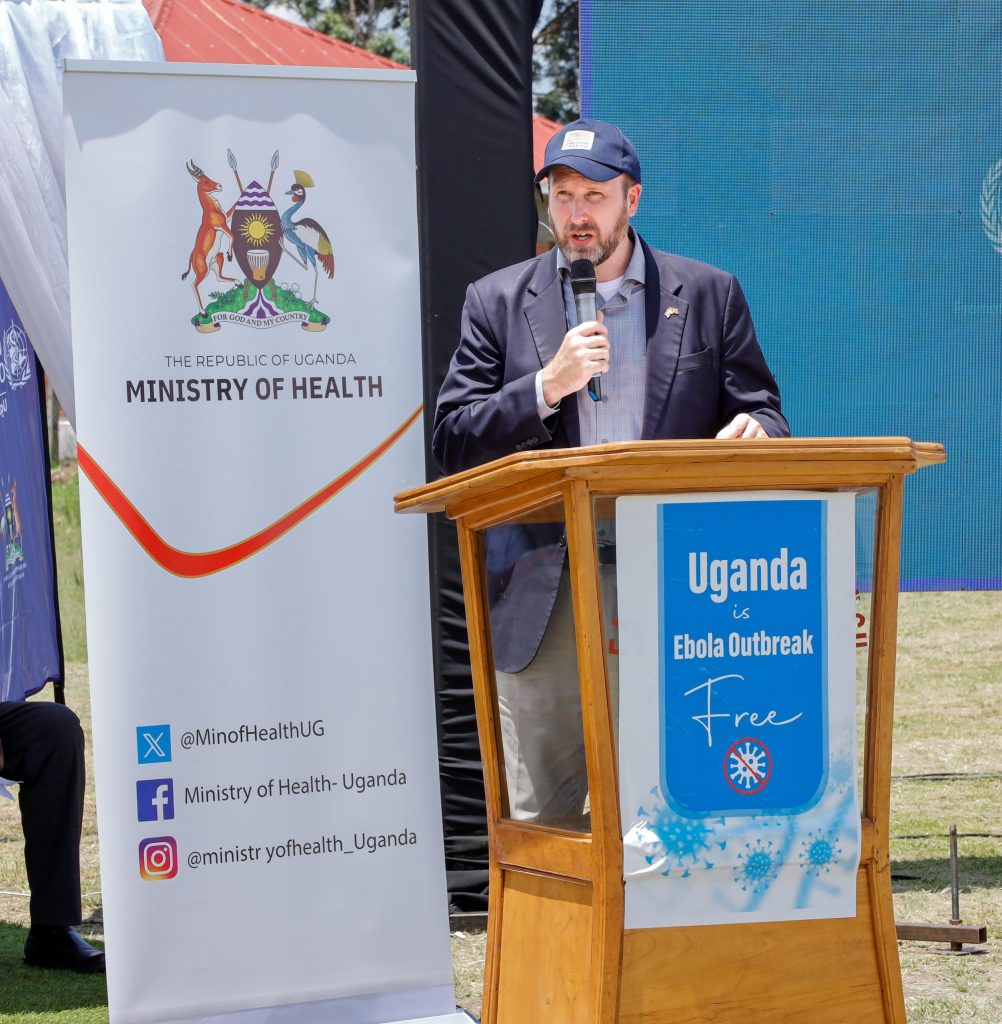Uganda has reaffirmed its commitment to strengthening its health systems and enhancing outbreak preparedness, particularly against Ebola and other infectious diseases. This was revealed by Dr Jane Ruth Aceng Ocero, the Minister of Health, during a recent address detailing the country’s latest efforts.
Speaking in Mbale at Busamagga Primary School , Dr Aceng announced the transformation of Mulago Hospital into a fully operational training centre dedicated to outbreak response. She noted that, despite occasional weather-related delays, the facility remains functional through timely refurbishments. “When the situation worsens, we refurbish the facility to maintain its usability,” Dr Aceng stated, underlining the government’s proactive approach in maintaining readiness.


Dr Aceng highlighted the vital role played by frontline health workers, ranging from professional medical personnel to village health teams. She emphasised that these workers are the most critical resource during an outbreak. While admitting that bureaucratic hurdles sometimes delay the disbursement of allowances, she reassured the public that all payments are eventually honoured, and grievances promptly addressed.
Looking to the future, Dr Aceng cautioned against any false sense of security regarding Ebola. She explained that the risk remains due to human encroachment into wildlife habitats and the movement of virus-carrying animals into human settlements. “It is unrealistic to expect Uganda to remain permanently free of Ebola,” she warned. As part of its strategy, Uganda has intensified ecological studies to map high-risk zones, focusing on building resilience rather than aiming for complete eradication of risk.
Surveillance remains a cornerstone of Uganda’s preparedness efforts. Continuous monitoring systems are in place not only for Ebola but also for diseases such as yellow fever, influenza, and polio. These systems are guided by World Health Organization protocols, ensuring that Uganda remains vigilant even between outbreaks.
In a further measure to bolster health security, Uganda is strengthening its legal and regulatory frameworks through amendments to the Public Health Act and compliance with International Health Regulations (IHR). Dr Aceng also confirmed Uganda’s readiness to commence the Tokomeza Ebola vaccine trial, aimed at preventing future outbreaks of the Sudan Ebola Virus. “Research must be concluded to inform future actions,” she noted.
During the 2025 Sudan Ebola Virus outbreak in Uganda, the United States government provided critical support amounting to nearly US$8 million. This assistance enabled enhanced surveillance, diagnostics, contact tracing, treatment, and public education, contributing to a swift and coordinated response.
More than 75 U.S. public health experts were deployed to work alongside Uganda’s Ministry of Health. Among the key interventions was the donation of monoclonal antibody therapeutics (MBP-134), offering promising treatment outcomes for Ebola patients. The U.S. Field Epidemiology Training Program (FETP) played a central role in investigating cases and analysing epidemiological data to guide response efforts.
Border health measures were also reinforced, with over 400,000 travellers screened at various entry points to prevent cross-border transmission. Healthcare workers in five high-risk districts received specialised training, while a massive community engagement drive reached more than eight million Ugandans with crucial health information.
Beyond Ebola-specific support, the United States supplied 500 rapid Ebola test kits, 10,000 test kits for mpox, and medical supplies worth over US$500,000. This assistance builds on a longstanding partnership between Uganda and the U.S., which has already contributed to notable achievements such as reducing HIV prevalence to 5.8% under PEPFAR and lowering malaria rates among children under five years from 42% to 9% through the President’s Malaria Initiative (PMI).
Reflecting on the experience, Dr Aceng emphasised the importance of rapid response during outbreaks. “The faster we detect and control an outbreak, the cheaper and less devastating it is,” she remarked. Uganda, she concluded, is now better prepared not only for Ebola but for a wide range of public health threats, signalling a strategic shift towards long-term, sustainable health security.





